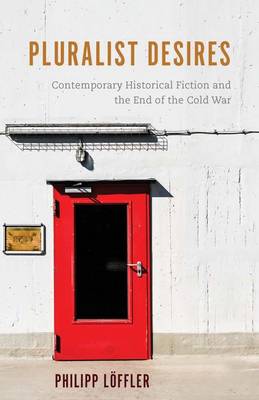
Bedankt voor het vertrouwen het afgelopen jaar! Om jou te bedanken bieden we GRATIS verzending (in België) aan op alles gedurende de hele maand januari.
- Afhalen na 1 uur in een winkel met voorraad
- In januari gratis thuislevering in België
- Ruim aanbod met 7 miljoen producten
Bedankt voor het vertrouwen het afgelopen jaar! Om jou te bedanken bieden we GRATIS verzending (in België) aan op alles gedurende de hele maand januari.
- Afhalen na 1 uur in een winkel met voorraad
- In januari gratis thuislevering in België
- Ruim aanbod met 7 miljoen producten
Zoeken
€ 177,45
+ 354 punten
Omschrijving
In Pluralist Desires, Philipp Löffler explores the contemporary historical novel in conjunction with three cultural shifts that have crucially affected political and intellectual life in the United States during the 1990s and 2000s: the end of the Cold War, the decline of postmodernism, and the re-emergence of cultural pluralism. Contemporary historical fiction - from Don DeLillo's Underworld and Philip Roth's American trilogy to Richard Powers's Plowing the Dark and Toni Morrison's A Mercy - relates and authorizes these developments by imagining the writing of history as a powerful form of world-making. Rather than asking whether history can ever be true, contemporary historical fiction investigates the uses of history for our individual lives. How can we use history to make our individual lives meaningful and worthy in the face of an unknown future? Pluralist Desires approaches these issues by excavating the origins of 19th-century pluralism and its revival in the late 20th and early 21st centuries, revealing how major American novelists have appropriated the genre of the historical novel in the pursuit of selfhood rather than truth. Löffler complements standard accounts of the end of history with a selection of careful close readings that fundamentally reposition the form and the function of the historical novel in contemporary American culture. PHILIPP LÖFFLER is Assistant Professor of American Literature at the University of Heidelberg, Germany.
Specificaties
Betrokkenen
- Auteur(s):
- Uitgeverij:
Inhoud
- Aantal bladzijden:
- 190
- Taal:
- Engels
- Reeks:
- Reeksnummer:
- nr. 19
Eigenschappen
- Productcode (EAN):
- 9781571139528
- Verschijningsdatum:
- 1/12/2015
- Uitvoering:
- Hardcover
- Formaat:
- Genaaid
- Afmetingen:
- 152 mm x 229 mm
- Gewicht:
- 453 g

Alleen bij Standaard Boekhandel
+ 354 punten op je klantenkaart van Standaard Boekhandel
Beoordelingen
We publiceren alleen reviews die voldoen aan de voorwaarden voor reviews. Bekijk onze voorwaarden voor reviews.









